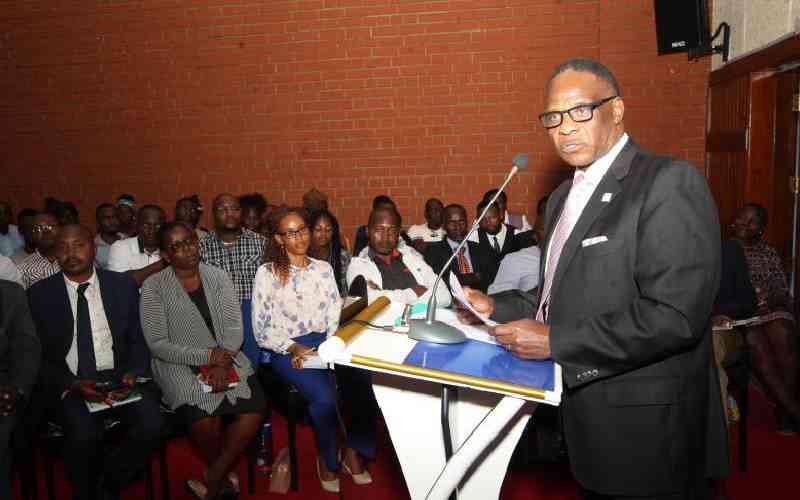×
The Standard e-Paper
Read Offline Anywhere

Audio By Vocalize

The government needs to widen the tax base to cut over-reliance on income collected through Pay As You Earn (PAYE).
A panel discussion on taxation and Bottom-Up economic model heard that the government should push for mainstreaming of informal sector to increase tax collection.
